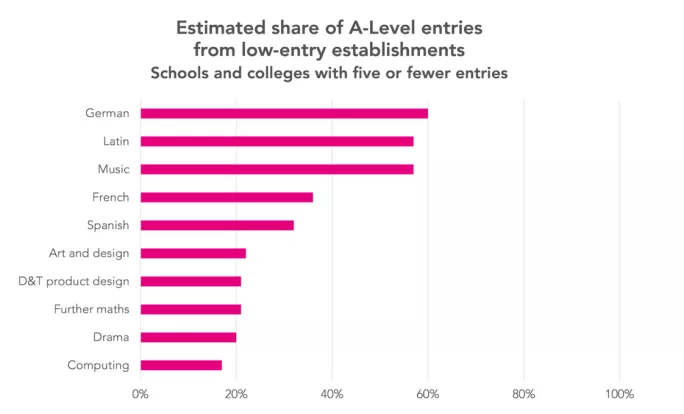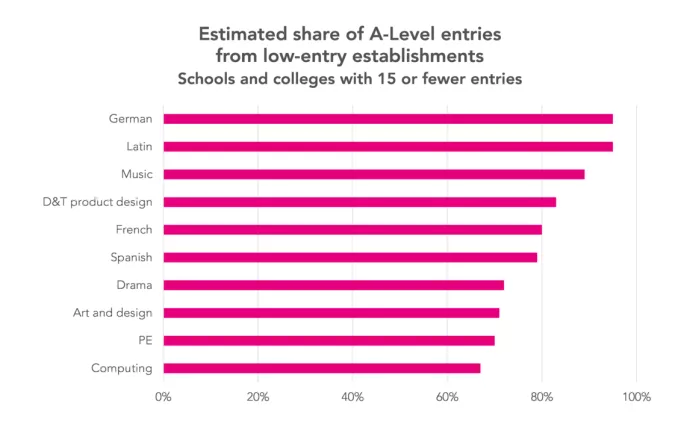New analysis has produced a list of A-level subjects where the grades that teachers have assessed are least likely to be changed.
On Friday Tes revealed that teacher assessed grades will not be used as part of the final grade calculation where GCSE and A-level subjects in a school have more than more 15 entries, with statistical modelling used instead.
By contrast, in subjects with no more than five entries in a school, pupils will be awarded their teacher-assessed grades, as statistical modelling would be inaccurate with such a small cohort.
Now in a blog by Philip Nye for FFT Education Datalab, A-level subjects with the greatest share of entries coming from schools or colleges with five or fewer entries has been estimated.
Exclusive: Teacher grades ignored in most GCSE results
Information: How schools can appeal GCSE and A-level results 2020
News: Restricted exam appeals a ‘life sentence’ for pupils
“There are three subjects - German, Latin and music - where we estimate that over half of the total number of entries come from establishments with five or fewer entries,” Mr Nye said.
He said it was “likely” that in these subjects, A-level grades would see an increase on last year that was above the 2 per cent suggested as an overall rise by Ofqual.
The exams regulator has calculated that the “vast majority” of teacher-assessed A-level grades this year were optimistic, and that if it had stuck with all teacher-assessed grades, A-level results would have risen by 12 per cent across all grades compared with the previous year.
Exam board sources have told Tes that pupils studying low-entry subjects this year could be at an advantage in the grades they receive.
FFT Datalab also calculated which subjects were most likely to have entries of 15 or fewer. In entries of between five and 15 pupils, Ofqual will use both teacher-assessed grades and its statistical model to calculate grades.






